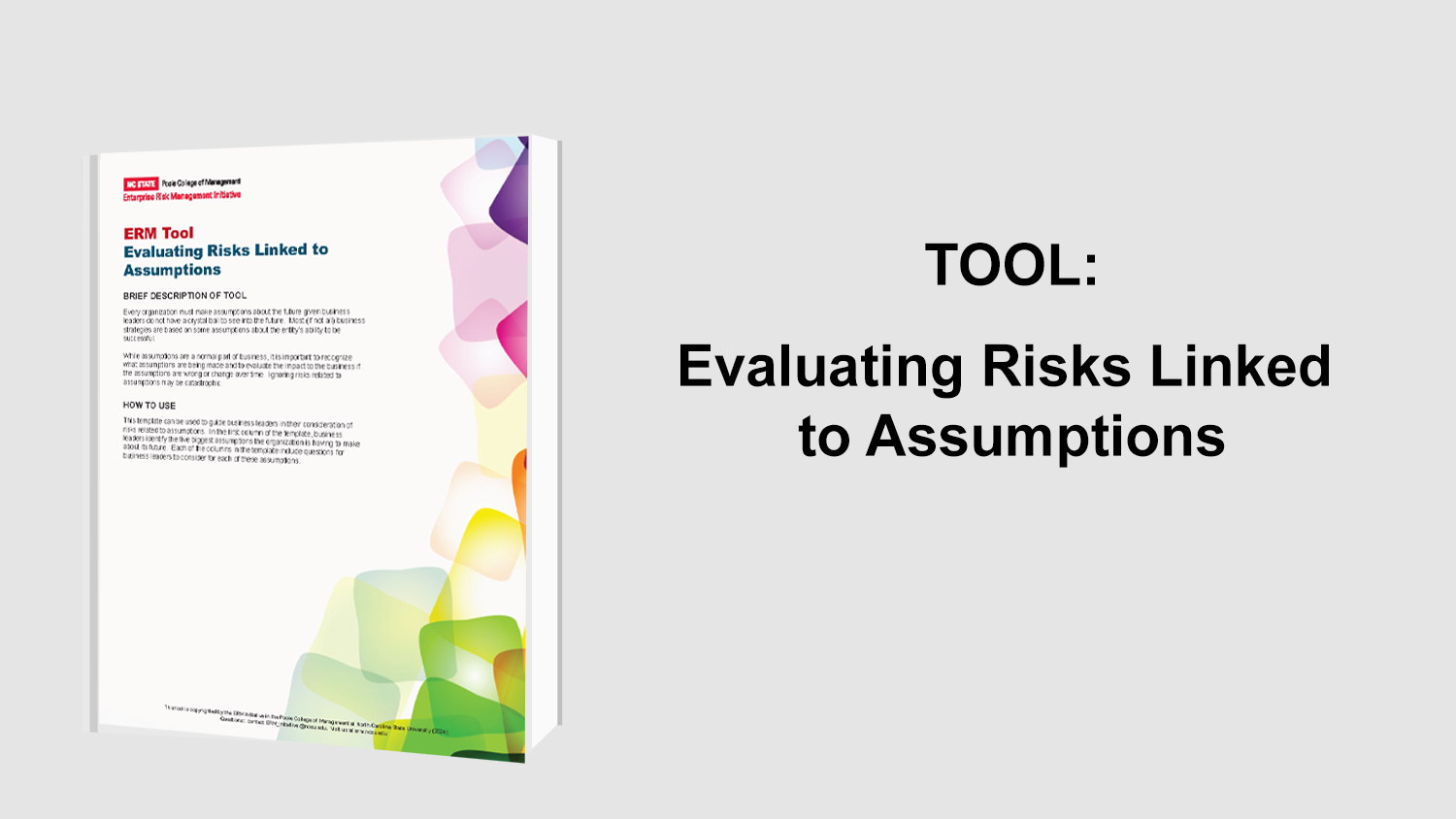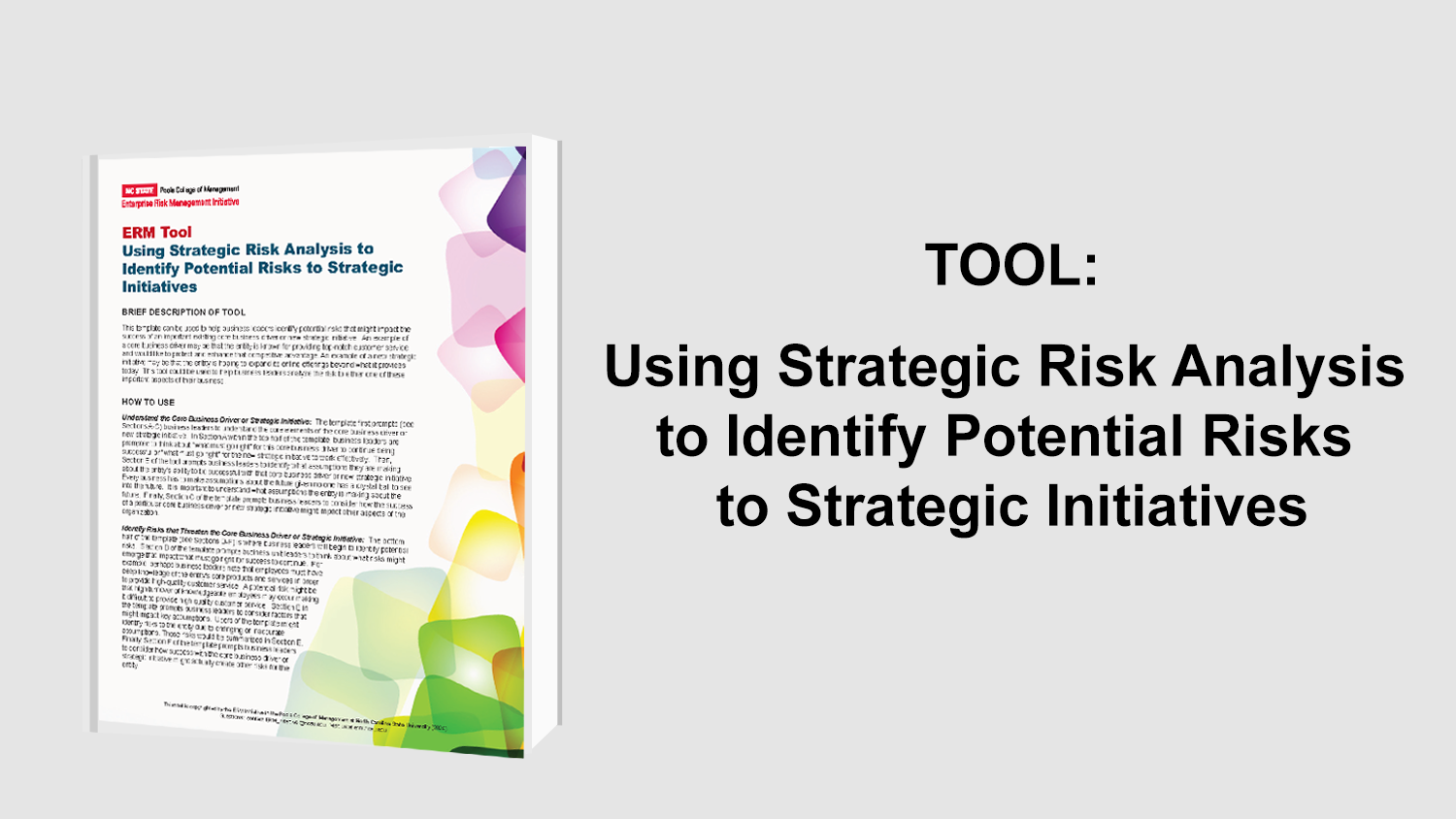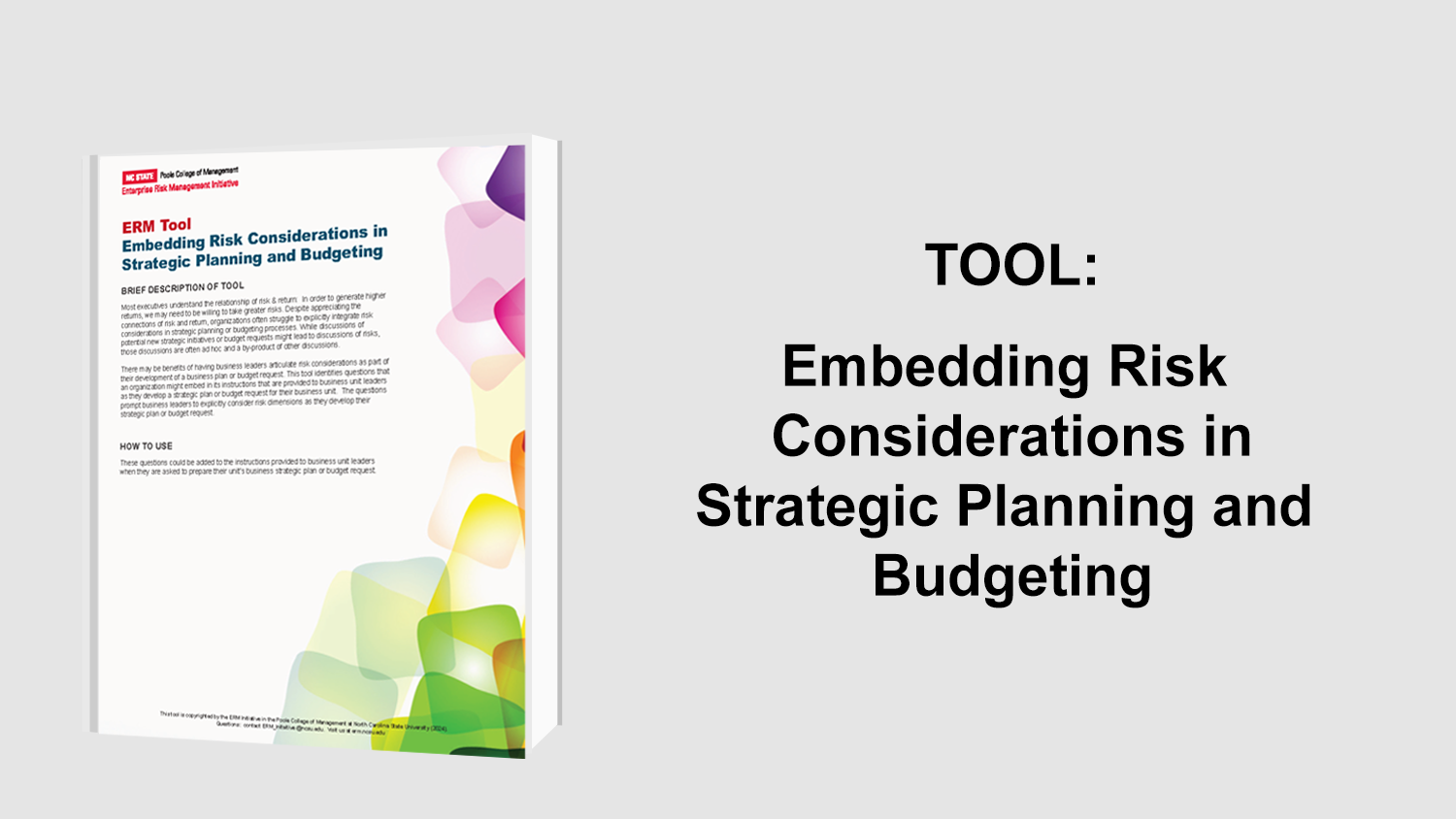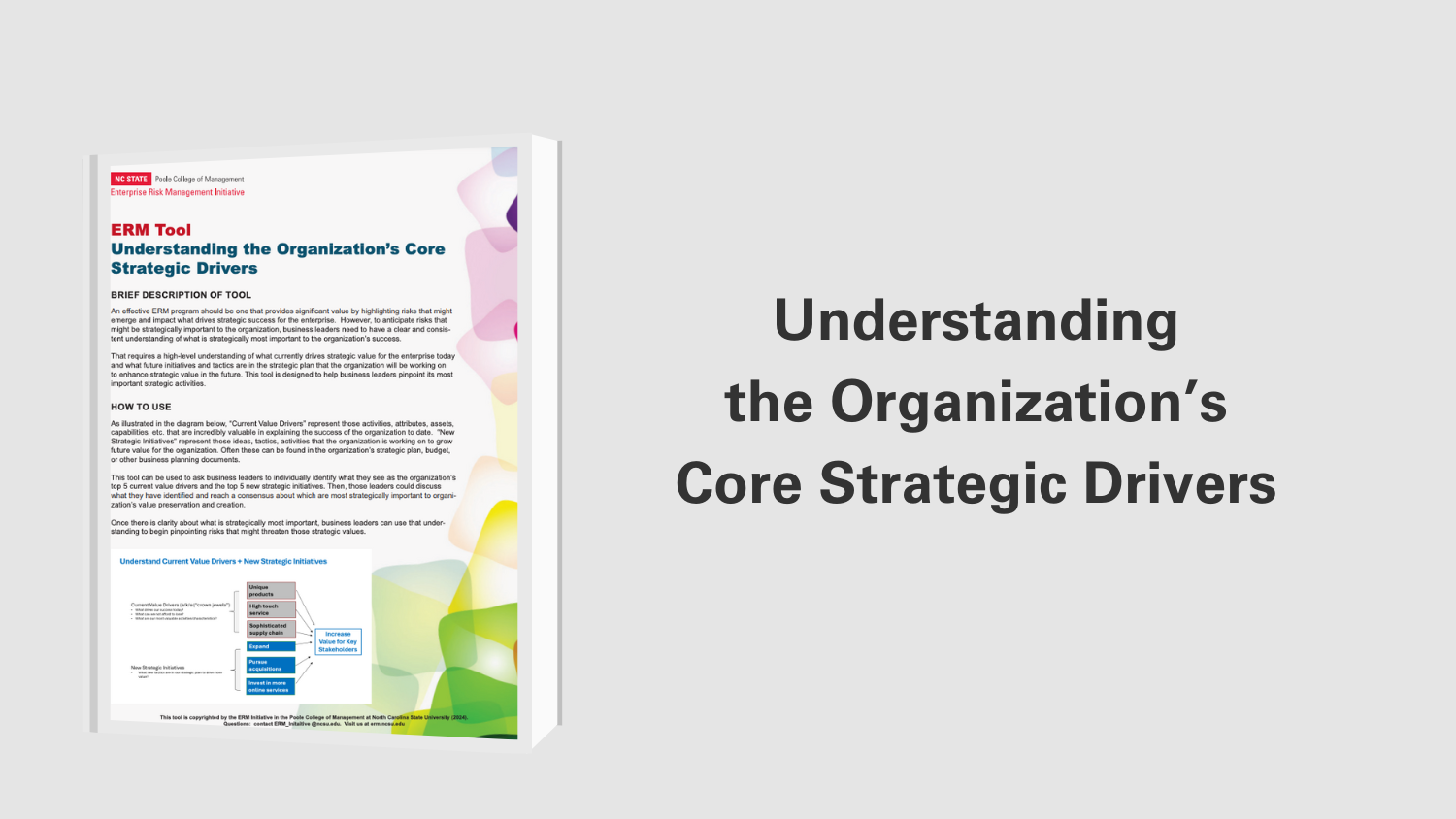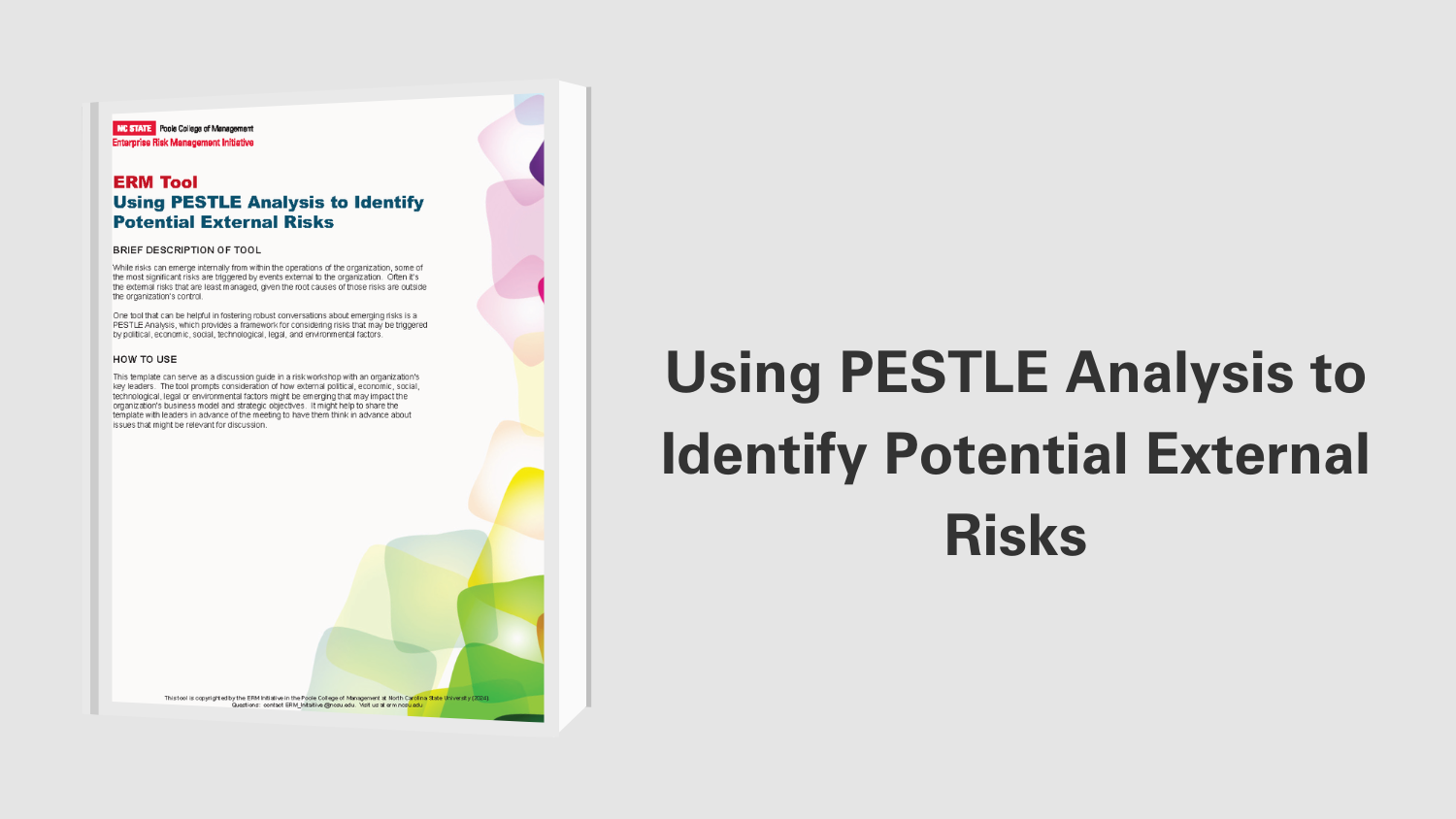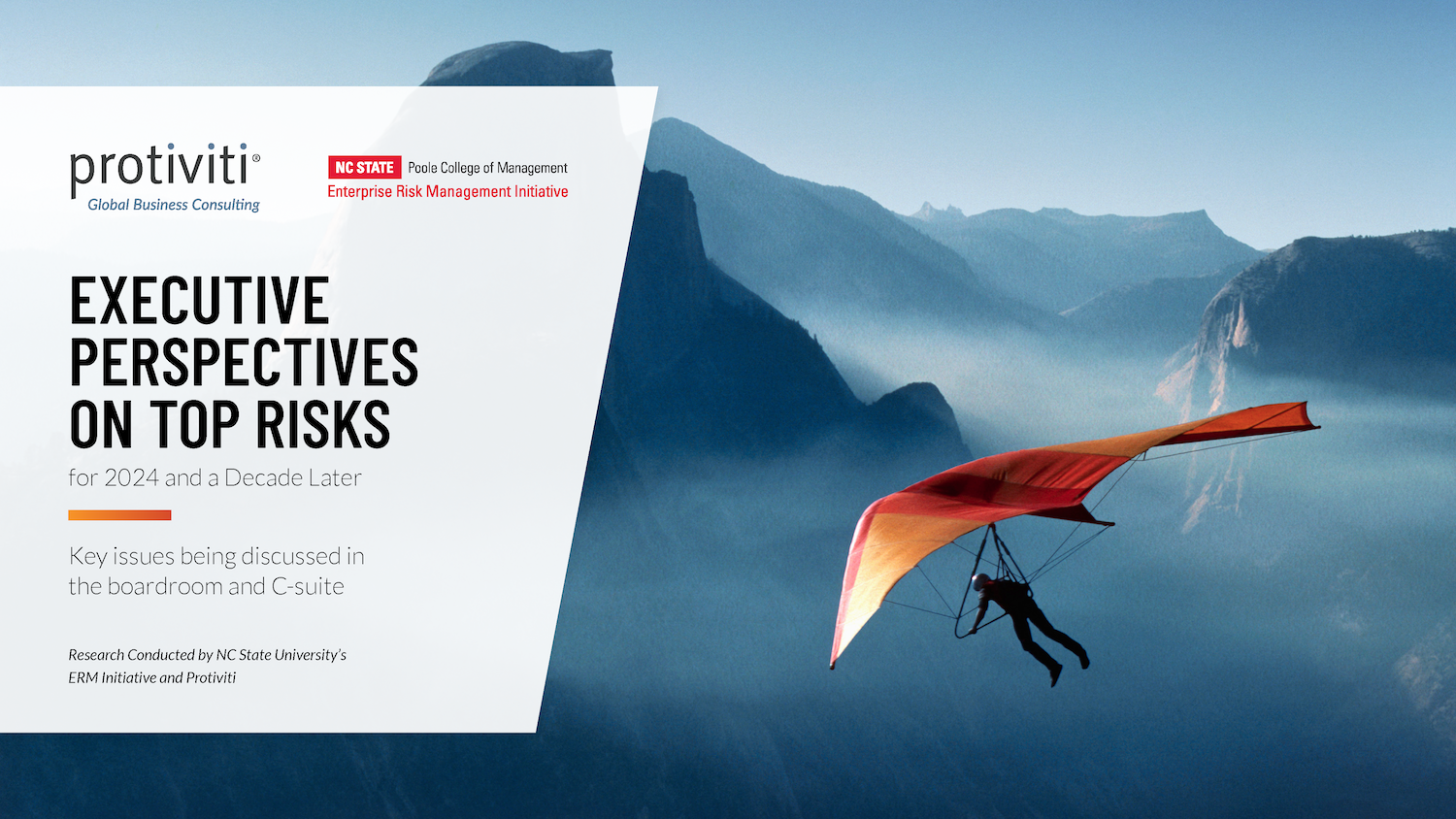Jul 20, 2023
Why the disconnect? Risks are Everywhere; Risk Management is Not
The 14th edition of The State of Risk Oversight, a report produced jointly by the AICPA & CIMA, together as the Association of International Certified Professional Accountants, and the ERM Initiative at North Carolina State University, shows that the volume and complexity of risks continues to be prominent on the radar of leaders at U.S. organizations of all types and sizes. However, complete and formal ERM processes are just as common now as five years ago, after the survey showed nearly a decade of increased interest in ERM. Mark Beasley, CPA, Ph.D., a professor at N.C. State and director of the school's ERM Initiative, analyzes the disconnect, explains why a post-pandemic sigh of relief is not a good sign for risk managers, and shares some of the questions that organizations can ask themselves to improve their ERM practices.
